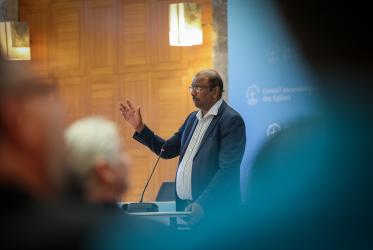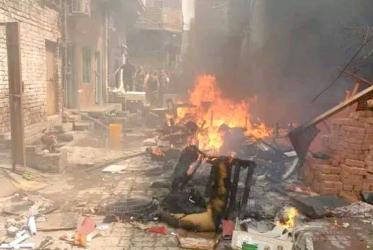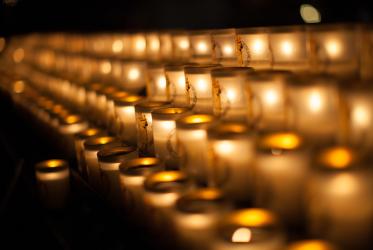Letter to H.E. Dr N. Hassan Wirajuda, Ambassador of Indonesia to the United Nations in Geneva, 27 June 2000.
Your Excellency,
Earlier this year, in a letter addressed on 11th January to the President of Indonesia, Dr Abdurrahman Wahid, the World Council of Churches expressed its concern at the increased incidence of communal violence in the Malukus region. The Council emphasized the need for the government of Indonesia to contain violence and take steps to restore inter-communal harmony. In February you were kind enough to receive me and my colleague, Mr Clement John, to discuss the planned visit to Indonesia of the General Secretary of the World Council of Churches, Dr Konrad Raiser. At the time we discussed the Council's concerns about the attacks on Christian minorities and the insecurity they had created.
In March Dr Raiser visited Indonesia in connection with the inauguration of the Assembly of the Communion of Churches of Indonesia (PGI). During that visit Dr. Raiser met and discussed the situation in Indonesia with President Abdurrahman Wahid. Particular reference was made to the inter-communal violence in Ambon and Halmahera. President Wahid explained the complexities of the situation in the Malukus and assured Dr Raiser that the government was taking all possible steps to restore law and order and to bring an end to the violence in the region. He requested understanding and patience to allow his government to address this complex problem.
It is now three months since these assurances were given but the situation has not improved. On the contrary it has become worse. The violence in the region continues unabated with no signs of respite, despite the fact that the government has deployed additional forces. In recent days we have received reports of the bombing of Churches in North Sumatra, a region which has hitherto remained peaceful and with good inter-communal relations. Church leaders in the region have called on their followers to exercise restraint and not to be provoked into retaliation. In Central Sulawesi, another region known for inter-communal harmony, communal tensions and violence have increased in recent days.
The World Council of Churches is deeply disturbed by these developments, and particularly those in the Malukus region where in recent days over a hundred people have been killed, and churches and houses belonging to members of the Christian community burned. Late last week, the day after we received warnings of imminent danger, the Indonesian Christian University and the Roman Catholic hospital in Ambon were burned. This has come as a shock not only to the people of Indonesia but also to people all over the world.
The continuing influx of intruders in the Malukus region from Java and other parts of the country troubles us deeply. Outsiders entering the region are armed and are held largely responsible by citizens in the region for the present state of lawlessness. The heavy deployment of security forces by the government has failed to deter the miscreants from carrying out their nefarious activities. Needless to say, this state of affairs tarnishes the good name of the Indonesian government both at home and abroad. Christian minorities that have been the target of these attacks are increasingly vulnerable and insecure. There is a growing feeling that the government has not taken adequate steps to enforce law and order and to provide for the safety and well-being of its people.
The World Council of Churches has repeatedly reiterated that it is concerned about the impact of continuing violence and loss of lives of Muslims and Christians alike. We are particularly dismayed that local efforts on the part of both communities to restore community harmony and peace are being destroyed by armed zealots from outside.
We therefore ask that you convey our sentiments to President Wahid, with the request that his Government take the strongest possible measures to restore law and order in the Malukus region, ensure the impartiality of security forces deployed there and in other affected regions, and apprehend and bring to justice those suspected of responsibility for killings and destruction.
With the assurance of our deepest respect, and looking forward to an early response, I am
Respectfully yours,
Dwain C. Epps
Director
Commission of the Churches on
International Affairs



